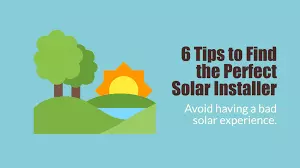Solar energy is a widely used renewable energy source. Homeowners and businesses can invest in solar panels to reduce their monthly bills and contribute to the environment. Solar installers can help you choose the right panel size and successfully install them. Here are six tips on finding the right solar installers:
1. Customization and System Design
The right solar installer can discuss the different panel types, sizes, and mounting systems with you to find the best design for your roof and home architecture. A customized solar panel system design maximizes the use of available space and optimizes energy production. They also thoroughly assess your property and energy requirements to provide solutions tailored to your unique needs. Personalized and proper system design can enhance the long-term performance of solar panels, lower operating costs, and provide more significant energy savings.
2. Financing Options
Some solar installers offer financing options for your solar panel installation. These options include solar leases, power purchase agreements (PPAs), and loans. Other installers may help you navigate government incentives like grants or tax credits. Whether through solar loan programs or innovative lease agreements, flexible financing options enable you to have solar power with minimal upfront cost. Finding an installer with diverse finance options can allow you to choose the best financial plan for your budget.
3. Quality Components
The effectiveness and longevity of your solar system can be affected by various factors, including components used during installation. Inquire about the efficiency of the installer’s mounting hardware, type and quality, wiring and connectors, and inverters. High-quality components reduce the risk of malfunctioning and resist adverse weather conditions. Choosing high-quality components can enhance your solar panel system’s durability and efficiency.
4. Battery Backup
Look for installers that offer a home battery backup. A battery backup system can store excess solar energy generated during the daytime. The stored energy can be used during power outages or at night. This feature provides extra security and reliability while reducing your reliance on the grid. During low or no solar production seasons, you can use stored energy in the batteries. Also, they allow you to shift your energy usage to times when electricity rates are lower. This can result in cost savings by avoiding higher electricity rates. A qualified solar installer can help you determine the size and type of battery backup system that suits your energy needs.
5. Monitoring and Maintenance
Consider if the installer provides ongoing maintenance and monitoring services after solar installation. Monitoring may include real-time tracking of the solar panel. Many solar installers use monitoring systems to collect data on energy consumption, production, and overall solar system function. These systems include meters, communication devices, inverters, displays, and sensors. Maintenance services may include routine inspection and cleaning, repairs, and system performance monitoring. Ongoing maintenance and monitoring allow earlier detection of errors like reduction in energy production, malfunctioning of the system, and any other irregularities.
6. Panel Efficiency and Size
Panel efficiency and size directly impact the overall solar energy system performance and effectiveness. Panel efficiency is the ability of solar energy to transform solar power into electricity. A higher efficiency panel produces more electricity. Finding a solar installer that provides high-efficiency panels can enhance and maximize energy production and optimize your return on investment in the long run. The right solar installer can recommend the right-sized solar panel system for your home for optimal energy production.
Find the Right Solar Installers Today
Choosing the right solar installer can impact the effectiveness and durability of your solar energy system. There are various factors to consider, including customization and system design, quality components, battery backup, financing options, monitoring and maintenance, panel efficiency, and size. These factors can help you choose the right installer. Contact a solar installer in your area today to get started.

